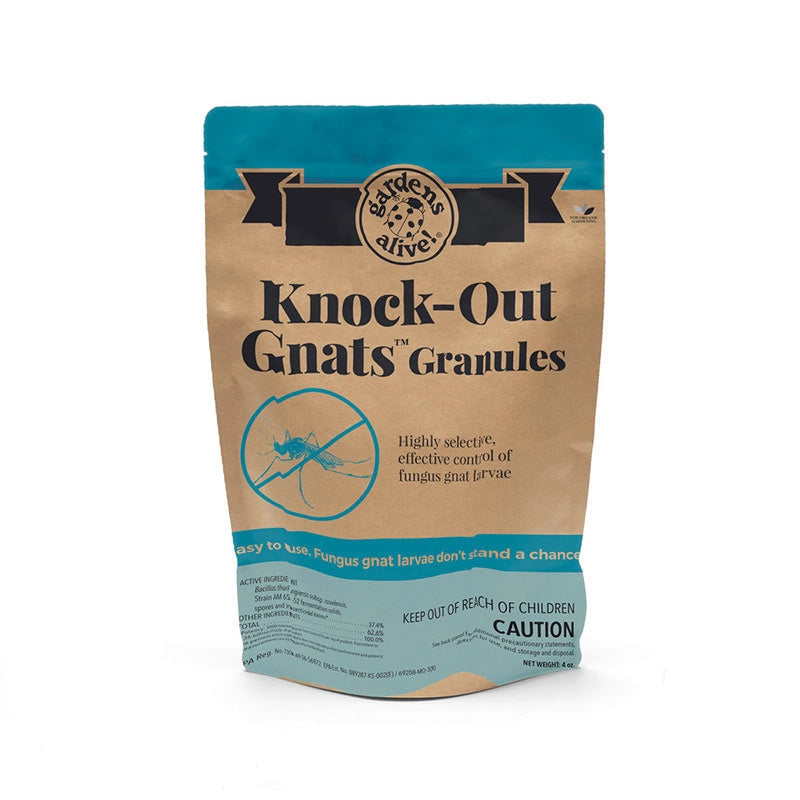×
Category
- New This Season
- Only From Gurney's
-
Vegetables
Asparagus Annual Vegetable Plants Beans Bush Bean Seeds Pole Bean Seeds Beets Broccoli Brussels Sprouts Cabbage Carrots Cauliflower Chard Cole Crops Deer Resistant Plants Eggplant Fall Harvest Vegetables Garlic Gourds Greens Heirloom Vegetables Herbs Kale Kohlrabi Lettuce Okra Onions Peas Peas - Southern Potatoes Pumpkins Radishes Rhubarb Root Crops Seed Tape Spinach Sprouts/Microgreens Sweet Potatoes Vegetable Seeds - Herbs
-
Perennials, Bulbs & Flowers
Flower Bulbs All Perennials Clematis Daylilies Deer Resistant Flowers Fragrant Flowers Wildflowers Southern Grove Wildflowers Marigold Seed Pollinator Seeds Sunflowers Zinnia Seed Pest Control Grass Seed Groundcovers Irises Lilies Ornamental Grasses Peony Plants Pollinator Plants and Seeds Shade Perennials Shade Perennials Tulips Vines & Climbers -
Gardens Alive! & Supplies
Seed Starting Supplies Plant Supports Beneficial Nematodes Composting Aids Container Gardening Fall Gardening Tools & Supplies Foods & Fertilizers Garden Animal Control Gardens Alive! Insect Control Gardening Aids Grow Tubs Harvesting & Kitchen Supplies Plant Disease Control Season Extenders Soil Amendments Tools & Supplies - Niles' Favorites
- Deer Resistant Plants
- Customer Favorites
Mosquito Trucks: Are They Spraying the Wrong Thing?
Let me emphasize that mosquitoes are REALLY dangerous. In fact, when I was asked to name the animal/creature that poses the biggest threat to humans, I quoted numerous studies that identified mosquitoes as the number one answer.
Those mosquitoes have been spreading some nasty viruses here in the US this season, and people are understandably demanding action.
When it comes to {quote} 'insects' that prey on people, the biggest (and most rational) fears are ticks (which are actually arachnids, like scorpions and Spider-Man), and mosquitoes. And while climate change has allowed those ticks to be active longer in the season and extend their range, this year's Insect Fear focus has been on the alarming uptick of mosquitoes that carry nasty diseases like West Nile Virus and the triple E variant of Equine Encephalitis (equine meaning horses; Encephalitis being a virus that makes your brain swell, and not in a good way).
There were few good organic options to fight mosquitoes back in the 1990s while I was editor-in-chief of ORGANIC GARDENING magazine. Then came BTI.
Short diversion: the basic form of Bt, short for Bacillus Thuringensis, had already been around for many decades. Originally discovered in Thurin Germany, this organism quickly killed caterpillar pests that chewed on the leaves of sprayed plants--without posing any harm to anything else. It was--and still is--a perfect specific organic control. (The best-known brand names are Dipel and Thuricide.)
Then other strains of Bt began to be discovered. The old original caterpillar killing version is often simply referred to as Bt; but the full scientific name is Bt kurstaki. Then a new strain was discovered: BTI, short for Bt Israelensis (because it was first found on a cat's paw in Israel; honest).
BTI literally has the potential to save the world. When donut-shaped 'mosquito dunks' or pellet-sized mosquito granules are added to standing water, it prevents mosquito eggs from developing into biting adults, without any risk to people, pets, fish, amphibians, etc. BTI only affects members of the fly family that breed in water. (Yes, mosquitoes are in the fly family.)
The cycle: female mosquitoes take a blood meal from us or another mammal, then seek out standing water in which to lay their eggs. If that water has been treated with BTI, no adults will emerge to harass us. This method is endorsed by the CDC (Centers for Disease Control) and every other rational organization.
Better yet: In 2019, Florida researchers tried spraying BTI mist out of old-school pesticide spray trucks and had tremendous success. With just a few tweaks to the spray nozzles and experiments with different concentrations of BTI, they achieved 100% mosquito control success, which is unheard of in science. (I'll post that research and other details below.)
Back to this summer. In August, local and national news broadcasts started showing trucks spraying for mosquitoes in many locations, especially New York City. I thought "I hope they're using BTI." Then I proceeded to read endless news articles about the spraying, and not a single one identified what was being sprayed. Finally, on one of the deepest research dives I've ever attempted, I found some legal documents that revealed they were spraying pyrethroids. What I said out loud then cannot be repeated here.
Pyrethroids are chemical pesticides that are toxic to honeybees, native bees and other pollinators; they are even more deadly to fish and amphibians like toads and frogs, with label warnings not to spray near bodies of water or clean equipment where any leftovers could get into water. They are one of the least environmentally sound pesticides in the world. Oh, and they're toxic to cats as well.
Numerous studies have long shown that only around one-half of one percent of these chemical sprays ever hit a mosquito. The reality is that spray trunks are out there to visibly appease people worried about mosquitoes. It's essentially a PR stunt that deceives people into thinking they're being protected when they're not.
I could only find one directive that even mentioned Bt--and even then, it was a brief mention after a long list of chemical sprays. And the authors of this manifest appeared not to know the difference between basic Bt and BTI.
We're like an ancient, advanced civilization that collapsed and lost its knowledge.
Now it's up to you. Ask your local municipality what they spray--NOW--before next year's plans and budgets are made. If they don't reply, ask your local newspaper and/or TV news crew to file a Freedom of Information Act request, reminding them that they're being handed a great story.
Use the references and citations I'll provide below to start 'pestering' your local authorities to switch. I even have your t-shirt slogan: "Kill Mosquitoes, Not Fish, Frogs and Honeybees". (If you order these, get me an XL.)
And protect your family directly by leaving out buckets of standing water treated with BTI beginning early in the Spring. Female mosquitoes stay close to where they were born, so you'll break the cycle by preventing that first generation from appearing around your home--and then wonder where all the skeeters went.
Here's the info I promised in one easy place:
Info on spray trucks using BTI:
study: bti in spray trucks for mosquito control - Google Search
(This link with take you a plethora of articles and studies)
Those mosquitoes have been spreading some nasty viruses here in the US this season, and people are understandably demanding action.
When it comes to {quote} 'insects' that prey on people, the biggest (and most rational) fears are ticks (which are actually arachnids, like scorpions and Spider-Man), and mosquitoes. And while climate change has allowed those ticks to be active longer in the season and extend their range, this year's Insect Fear focus has been on the alarming uptick of mosquitoes that carry nasty diseases like West Nile Virus and the triple E variant of Equine Encephalitis (equine meaning horses; Encephalitis being a virus that makes your brain swell, and not in a good way).
There were few good organic options to fight mosquitoes back in the 1990s while I was editor-in-chief of ORGANIC GARDENING magazine. Then came BTI.
Short diversion: the basic form of Bt, short for Bacillus Thuringensis, had already been around for many decades. Originally discovered in Thurin Germany, this organism quickly killed caterpillar pests that chewed on the leaves of sprayed plants--without posing any harm to anything else. It was--and still is--a perfect specific organic control. (The best-known brand names are Dipel and Thuricide.)
Then other strains of Bt began to be discovered. The old original caterpillar killing version is often simply referred to as Bt; but the full scientific name is Bt kurstaki. Then a new strain was discovered: BTI, short for Bt Israelensis (because it was first found on a cat's paw in Israel; honest).
BTI literally has the potential to save the world. When donut-shaped 'mosquito dunks' or pellet-sized mosquito granules are added to standing water, it prevents mosquito eggs from developing into biting adults, without any risk to people, pets, fish, amphibians, etc. BTI only affects members of the fly family that breed in water. (Yes, mosquitoes are in the fly family.)
The cycle: female mosquitoes take a blood meal from us or another mammal, then seek out standing water in which to lay their eggs. If that water has been treated with BTI, no adults will emerge to harass us. This method is endorsed by the CDC (Centers for Disease Control) and every other rational organization.
Better yet: In 2019, Florida researchers tried spraying BTI mist out of old-school pesticide spray trucks and had tremendous success. With just a few tweaks to the spray nozzles and experiments with different concentrations of BTI, they achieved 100% mosquito control success, which is unheard of in science. (I'll post that research and other details below.)
Back to this summer. In August, local and national news broadcasts started showing trucks spraying for mosquitoes in many locations, especially New York City. I thought "I hope they're using BTI." Then I proceeded to read endless news articles about the spraying, and not a single one identified what was being sprayed. Finally, on one of the deepest research dives I've ever attempted, I found some legal documents that revealed they were spraying pyrethroids. What I said out loud then cannot be repeated here.
Pyrethroids are chemical pesticides that are toxic to honeybees, native bees and other pollinators; they are even more deadly to fish and amphibians like toads and frogs, with label warnings not to spray near bodies of water or clean equipment where any leftovers could get into water. They are one of the least environmentally sound pesticides in the world. Oh, and they're toxic to cats as well.
Numerous studies have long shown that only around one-half of one percent of these chemical sprays ever hit a mosquito. The reality is that spray trunks are out there to visibly appease people worried about mosquitoes. It's essentially a PR stunt that deceives people into thinking they're being protected when they're not.
I could only find one directive that even mentioned Bt--and even then, it was a brief mention after a long list of chemical sprays. And the authors of this manifest appeared not to know the difference between basic Bt and BTI.
We're like an ancient, advanced civilization that collapsed and lost its knowledge.
Now it's up to you. Ask your local municipality what they spray--NOW--before next year's plans and budgets are made. If they don't reply, ask your local newspaper and/or TV news crew to file a Freedom of Information Act request, reminding them that they're being handed a great story.
Use the references and citations I'll provide below to start 'pestering' your local authorities to switch. I even have your t-shirt slogan: "Kill Mosquitoes, Not Fish, Frogs and Honeybees". (If you order these, get me an XL.)
And protect your family directly by leaving out buckets of standing water treated with BTI beginning early in the Spring. Female mosquitoes stay close to where they were born, so you'll break the cycle by preventing that first generation from appearing around your home--and then wonder where all the skeeters went.
Here's the info I promised in one easy place:
Info on spray trucks using BTI:
study: bti in spray trucks for mosquito control - Google Search
(This link with take you a plethora of articles and studies)


